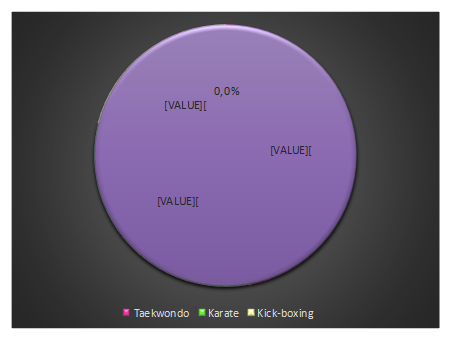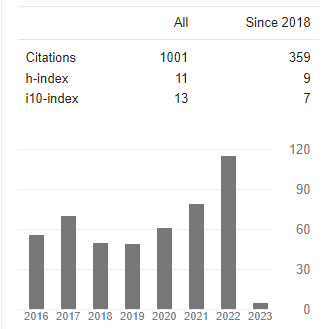The AGGRESSION, MINDFULNESS AND SELF- ESTEEM AMONG PLAYERS OF COMBATIVE SPORTS
Abstract
Sport is no longer confined to being a source of competition, recreation and fitness and rather has been considered as a potent life skill especially for the young minds. Aggression, mindfulness and self-esteem can serve to be vital skills for players of combative sports. To explore the same, the present research tries to verify the relationship between aggression, mindfulness and self-esteem among players of combative sports. The sample comprises of 110 players of combative sports within the age range of 19 to 23 years from in and around the Pune city. The tools used in this research were Mindfulness Attention Awareness Scale (Brown & Ryan, 2003), Rosenberg Self Esteem Scale (Rosenberg 1965) and Aggression Questionnaire (Pati,1976). The obtained results show there is no significant correlation between aggression and mindfulness, aggression and self-esteem and there is a positive correlation between mindfulness and self-esteem.
Key words: Combative Sports, Aggression, Mindfulness & Self -Esteem
Downloads
References
Baron, R. A., & Richardson, D. R. (1994). Human aggression (2nd ed.). New York, NY: Plenum Press.
Birrer D, Röthlin P, Morgan G. Mindfulness to enhance athletic performance: Theoretical considerations and possible impact mechanisms. Mindfulness. 2012; 3:325–246. doi: 10.1007/s12671-012-0109-2.
Bhardwaj, S. &Rathee, N. (2013). Optimizing aggression in combative sports - An analytical approach. Journal of Physical Education and Sport. 13. 153-156. 10.7752/jpes.2013.02025.
Bowker, A. (2006). The relationship between sports participation and self-esteem during early adolescence. Canadian Journal of Behavioural Science / Revue canadienne des sciences du comportement, 38(3), 214–229. https://doi.org/10.1037/cjbs2006009
Bowker, A., Gadbois, S. & Cornock, B. Sports Participation and Self-Esteem: Variations as a Function of Gender and Gender Role Orientation. Sex Roles 49, 47–58 (2003). https://doi.org/10.1023/A:1023909619409
Bredemeier, B.J. (1994). Children's moral reasoning and their assertive, aggressive, and submissive tendencies in sport and daily life. Journal of Sport and Exercise Psychology, 16,1-14.
Chukwuemeka, O. & Ugwu, L. (2015). An Evaluation of The Relationship Between Coping, Emotional Intelligence And Psychological Well-Being Among Nigerian Undergraduates. International Journal of English, Language, Literature and Humanitites. 2(10). 1-18.
Curran, A. (2012). An investigatory study of the effect of sport participation on aggression, self-esteem and life satisfaction. Bachelor's Final Year Project, Dublin Business School.
Hayden,L.,Whitley,M.,Cook,A.,Dumais,A.,Silva,M.,&Scherer,A. (2015). An exploration of life skill development through sport in three international high schools. Qualitative Research in Sport, Exercise and Health. 7. 10.1080/2159676X.2015.1011217.
Heppner, W., Kernis, M., Lakey, C., Campbell,W., Goldmen,B.,Davis,P. and Casio,E.(2008). Mindfulness as a means of reducing aggressive behaviour: dispositional and situational evidence. Aggressive Behaviour. Vol 34(5). Wiley. Retrieved from: https://onlinelibrary.wiley.com/doi/10.1002/ab.20258
Hodge, K., Sleivert, G. & McKenzie A. (1996). Smart Training for Peak Performance. Reed Publishing: Auckland.
Kabat-Zinn, J. (1994). Wherever You Go, There You Are: Mindfulness Meditation in Everyday Life. New York: Hyperion.
Kuśnierz,C.&Bartik,P.(2015).The impact of practice of selected combat sports on signs of aggression in players in comparison with their non-training peers.Journal of Combat Sports and Martial Arts,5,17-22.DOI: 10.5604/20815735.1127448
Matsumoto, D., Konno, J., Ha, H. (2009). Sport Psychology in Combat Sports. In: Kordi, R., Maffulli, N., Wroble, R.R., Wallace, W.A. (eds) Combat Sports Medicine. Springer, London. https://doi.org/10.1007/978-1-84800-354-5_3
Mandeep Singh (2010). Evaluation And Improvement Of Sports Techniques Through Biomechanical Updated Analyzing Technology, University News, Journal of Higher Education Association of Indian Universities, Association of Indian Universities, Vol:48:Issue.05;2010 Pp45-57, 2010
Mandeep Singh Nathial, A Study of Adjustment and Emotional Intelligence of University Coaches in India, American Journal of Applied Psychology. Volume 3, Issue 6, November 2014 , pp. 122-126. doi: 10.11648/j.ajap.20140306.11
Nathial, Mandeep Singh. A COMPARATIVE AND ANALYTICAL STUDY OF SELF-ESTEEM AND JOB SATISFACTION IN ATHLETES AND NON ATHLETES. Journal of Advances in Social Science and Humanities, 2(10).https://doi.org/10.15520/jassh210123
Pati,G.(1976).Aggression Questionnaire, Mental Health Institute, SCB Medical College, Cuttack, Orissa.
Piskorska, E.,Mieszkowski, J.,Kochanowicz, A., Wędrowska, E., Niespodziński, B.& Borkowska, A. (2016). Mental skills in combat sports - Review of methods anxiety evaluation. Archives of Budo. 12.
Rosenberg M. (1965a). Rosenberg self-esteem scale (RSE): acceptance and commitment therapy. Measur. Pack 61:52
Singh, A., & Singh , D. M. (2013). PROMOTION OF RESEARCH CULTURE –ENHANCING QUALITY IN HIGHER EDUCATION. International Journal of Behavioral Social and Movement Sciences, 2(2), 202–208. Retrieved from https://ijobsms.org/index.php/ijobsms/article/view/152
SINGH, M., & SINGH SIDHU, A. (2016). A COMPARATIVE STUDY OF BODY COMPOSITION AND RELATIVE HEALTH STATUS AMONG RESIDENT AND NON-RESIDENT STUDENTS IN DIFFERENT SCHOOLS OF J&K. International Journal of Behavioral Social and Movement Sciences, 5(3), 08–13. Retrieved from https://ijobsms.org/index.php/ijobsms/article/view/320
Singh Nathial, D. M. (2012). ANALYZING THE CREDIT BASED SYSTEM IN PHYSICAL EDUCATION. International Journal of Behavioral Social and Movement Sciences, 1(3), 172–176. Retrieved from https://ijobsms.org/index.php/ijobsms/article/view/37
SHARMA, N. P., & SINGH, M. (2014). SENIOR AGE GROUP RELATIVE EXERCISES AND IMPACT ON THEIR LIFESTYLE. International Journal of Behavioral Social and Movement Sciences, 3(04), 78–82. Retrieved from https://ijobsms.org/index.php/ijobsms/article/view/246
Skelton, D., Glynn, M., &Berta S. (1991). Aggressive behaviour as a function of taekwondo ranking. Perceptual and Motor Skills, 72(1), 179-182.
Wlazlo, A., Szuszkiewicz, M., and Wlazlo, E. (2007) Self-aggression in athletes practicing combat sports. Physical Education and Sport, 51, 67 – 71.
Wrześniewski K. (2015). The effect of taekwondo training on the level of aggression. Studies in Sport Humanities, 18, 40-46.

Copyright (c) 2024 Suman Mahadevan, Dr. Juhi Deshmukh

This work is licensed under a Creative Commons Attribution 4.0 International License.














